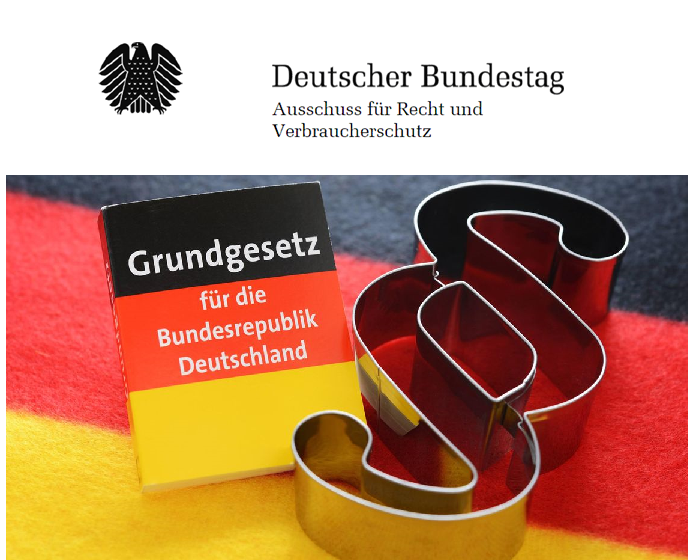

Investigating the suspected involvement of the EPO in attempts to subvert parliamentary democracy and the rule of law in Germany.
This new series is a follow-up to the recent exposé concerning the sell-out of the EPO's "digital sovereignty" to Microsoft Inc.
"The available documentary evidence suggests that the Legal Affairs Committee of the German Federal Parliament (known as the "Bundestag") had the wool pulled over its eyes by a senior official of the German Federal Ministry of Justice acting in collusion with a senior official of the EPO."The story begins back in April 2014 when a member of the public requested the Bavarian State Data Protection Commissioner, Dr Thomas Petri, to investigate the EPO's data protection framework.
In May 2014, following the conclusion of his investigation, Dr Petri contacted his counterpart at federal level, the Federal Commissioner for Data Protection and Freedom of Information, Ms Andrea Voßhoff.
Petri expressed his concern about the deficiencies which he had identified in the EPO's data protection framework and he requested Voßhoff's support in pursuing the matter at a national level via her office.
Ms Voßhoff's efforts to follow-up on the issues raised by Dr Petri ultimately led her to contact the Legal Affairs Committee of the Bundestag in July 2015, with a request to that Committee to take appropriate action.
The matter subsequently appeared as item no. 18 on the agenda of the 71st meeting of the Legal Affairs Committee which took place in October 2015.
However, the official government memorandum submitted to the Legal Affairs Committee was used to hoodwink the Committee into believing that everything was in order at the EPO and that the organisation's data protection framework was "fit for purpose".
So how exactly did it come about that the Legal Affairs Committee of the Bundestag was led to conclude that the concerns expressed by Dr Petri and Ms Voßhoff did not deserve to be investigated further?
"So how exactly did it come about that the Legal Affairs Committee of the Bundestag was led to conclude that the concerns expressed by Dr Petri and Ms Voßhoff did not deserve to be investigated further?"Official correspondence between the EPO and the German Federal Ministry for Justice can help to shed light on this mystery.
Of particular interest here are the exchanges which took place between the Vice-President in charge of the EPO's Directorate of Legal and International Affairs (DG5), Raimund Lutz, and the official of the Justice Ministry entrusted with preparing the official government report for submission to the Legal Affairs Committee.
The Justice Ministry official in question was a certain Dr Christoph Ernst, who at that time was an Assistant Director ("Ministerialdirigent") in the Ministry and also the head of the German delegation to the EPO's Administrative Council.
"From the available documentation it would appear that back in 2015 Lutz and Ernst acted in concert to misinform the Legal Affairs Committee of the Bundestag for the purpose of forestalling any further parliamentary scrutiny of the EPO's data protection framework."From the available documentation it would appear that back in 2015 Lutz and Ernst acted in concert to misinform the Legal Affairs Committee of the Bundestag for the purpose of forestalling any further parliamentary scrutiny of the EPO's data protection framework.
It is worth noting that when Lutz retired at the end of 2018, his successor at the EPO as the Vice-President of DG5 was none other than his former "accomplice" at the German Justice Ministry, Christoph Ernst. We will comment on this curious "coincidence" in more detail in due course.
But before delving into the details of this murky affair, we will first of all take a look at how the EPO has been the subject of parliamentary questions in various jurisdictions in recent years. ⬆